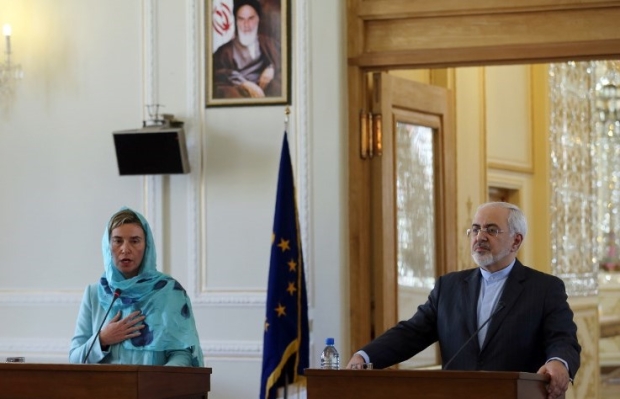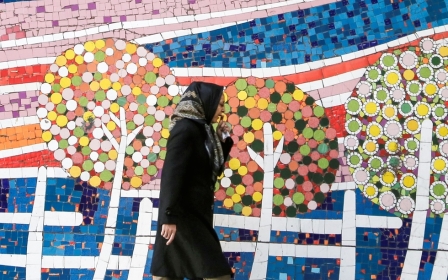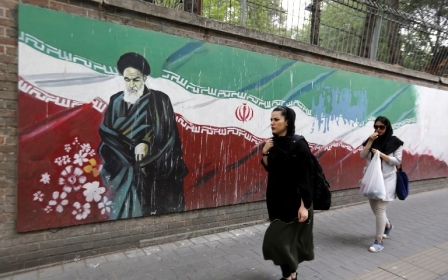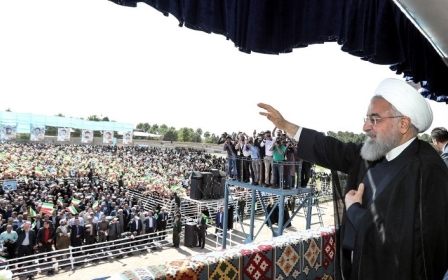Europe's difficult route to saving the Iran nuclear deal
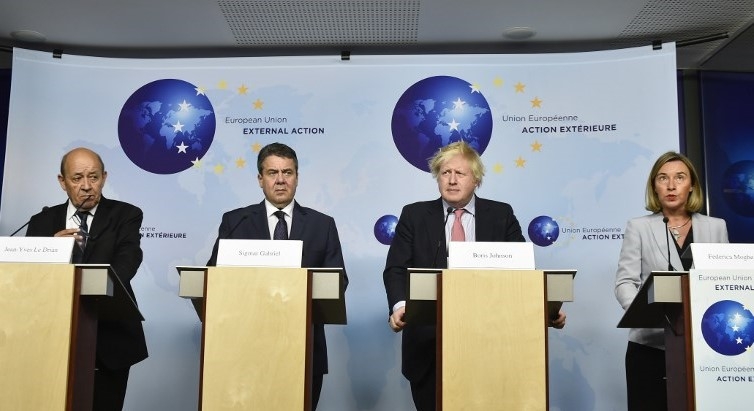
US President Donald Trump's decision to pull out of the Joint Comprehensive Plan of Action (JCPOA), the official name of the 2015 Iran nuclear deal, is a slap in the face of America's European allies. Europe has invested massive political capital in the deal, which serves its strategic interests in many respects.
The deal has upheld the non-proliferation norm. It has removed the risk of a US-Israeli strike against Iran's nuclear facilities and thus prevented further destabilisation of the Middle East.
Thanks to the Iran deal, the Europeans have been able to relaunch a political dialogue and intensify economic ties with Iran
Thanks to the Iran deal, the Europeans have been able to relaunch a political dialogue and intensify economic ties with Iran. Finally, the JCPOA is a testament to Europe's capacity to play a geopolitical role, as it was the culmination of a process initiated by France, Germany and the UK (the E3) back in 2003.
Saving the agreement
It comes as no surprise then that the Europeans have solemnly re-committed to the nuclear deal following Trump's announcement. This move has achieved the immediate result of forestalling an abrupt withdrawal by Iran too – at least for the time being. In the next few weeks, Iranian negotiators will meet the other signatories of the JCPOA – the E3 and the EU as well as Russia and China – to explore ways to save the agreement.
Russia and China will undoubtedly confirm they will uphold their side of the deal. China's pledge to keep buying oil, in particular, should reassure Iran that the massive Chinese market would continue to absorb its energy exports – the main target of US sanctions.
EU companies, and especially banks, in other words, will soon face the choice between doing businesses with Iran or risks fines or other penalties
It is Europe's contribution though that is most likely to tip the scales in Iran's calculation about whether to stay in the nuclear deal or not. To stay in the deal, the Iranians will need significant economic and political returns, namely firm guarantees that Iran's trade and investment relations would be safeguarded and that the US would remain isolated. Europe is the only JCPOA party that can deliver on both accounts.
But can it? The problem with the US pull-out is not that US firms will not be allowed to do business with Iran. Direct US-Iranian economic interactions have been prohibited by the US government since the mid-1990s, a situation the JCPOA had not changed.
The problem lies with the US secondary sanctions, which allow the US government to apply huge fines and other restrictions on foreign companies. These measures could only apply to firms present in US markets, which however happens to include most European banks, major companies, as well as medium-sized enterprises.
US secondary sanctions
EU companies, and especially banks, in other words, will soon face the choice between doing businesses with Iran or risk fines or other penalties. It is not be difficult to predict what their preference will be. Hence, if the Europeans want to keep Iran in the nuclear deal, they will have to protect their banks and firms from US regulators.
EU lawyers and officials are currently studying a number of options to provide legal protection to European firms and banks. Unfortunately, no option would provide waterproof protection. One way or the other, the US secondary sanctions would eventually hit.
One way to obtain political protection is wooing the Trump administration. In this scenario, the Europeans would meet US demands to adopt tough sanctions on Iran for its ballistic activities and support for allies in Syria, Lebanon, Iraq and Yemen. They would do so hoping that the US administration would refrain from applying the secondary sanctions.
This strategy entails the risk that the Iranians would see the Europeans as duplicitous and conclude that there is no point in staying in the JCPOA. More importantly, Trump has given no hint he would be willing to do the Europeans any favour to save a deal he hates.
Retaliate and negotiate
The only alternative for the Europeans is a strategy of denunciation, possibly retaliation, and negotiation. The Europeans could embark in a public diplomacy campaign conveying the message to US audiences that targeting European firms that are involved in doing legitimate business under EU laws would be a serious breach of inter-ally solidarity.
The Europeans should warn they could retaliate by initiating a dispute in the World Trade Organisation or even by adopting tariffs that would be used to compensate EU firms hit by US sanctions.
The goal would be to persuade the US that making concessions expanding the room for safe manoeuvre for EU firms would be less costly than engaging in a transatlantic fight. While Trump is impervious to this argument, many in his administration and Congress, as well as the public opinion, are not, and may take steps accordingly
Even if the Europeans were to win such concessions, they would still not be able to trade with and invest in Iran as much as they would like. What this strategy would achieve, however, is winning Iran's trust. And that's all that it takes to keep the JCPOA in place. After all, the deal can survive a US withdrawal, but not an Iranian one.
- Riccardo Alcaro is research coordinator and head of the Global Actors Programme at the Istituto Affari Internazionali (IAI), Rome. He has been a Visiting Fellow at the Center for the United States and Europe (CUSE) at the Brookings Institution of Washington, DC. He is the author of Europe and Iran’s Nuclear Crisis. Lead Groups and EU Foreign-Policy Making (Palgrave Macmillan). He tweets at @Ric_Alcaro.
The views expressed in this article belong to the author and do not necessarily reflect the editorial policy of Middle East Eye.
Photo: (L to R) French Foreign Affairs Minister Jean-Yves Le Drian, German Foreign Minister Sigmar Gabriel, British Foreign Secretary Boris Johnson and High Representative of the Union for Foreign Affairs and Security Policy Federica Mogherini give a press conference at the EU headquarters in Brussels on 11 January 2018 (AFP)
New MEE newsletter: Jerusalem Dispatch
Sign up to get the latest insights and analysis on Israel-Palestine, alongside Turkey Unpacked and other MEE newsletters
Middle East Eye delivers independent and unrivalled coverage and analysis of the Middle East, North Africa and beyond. To learn more about republishing this content and the associated fees, please fill out this form. More about MEE can be found here.



